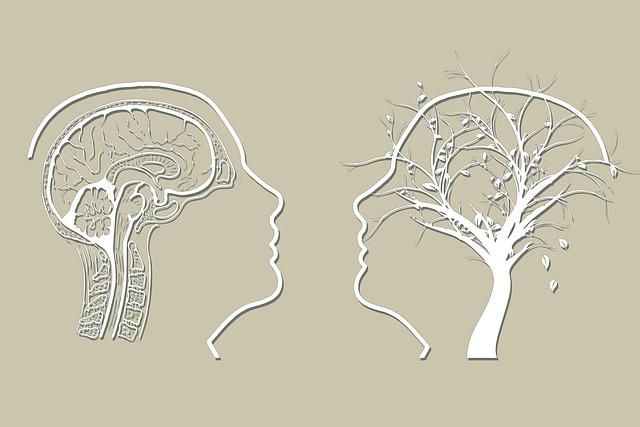Postpartum depression (PPD) impacts up to 1 in 7 new mothers globally, with untreated PPD causing severe consequences for children's emotional development. Early intervention is crucial, focusing on targeted therapy for exposed children and evidence-based practices for mothers. Positive thinking exercises, reframing challenges as growth opportunities, significantly enhance mental well-being for both children and adults recovering from PPD. Customized positive thinking activities tailored to young minds offer life-changing therapeutic interventions. Gratitude practices, mindfulness, self-care routines, and mental wellness coaching aid in managing PPD and other mental health challenges. Measuring exercise effectiveness through self-reporting and long-term follow-ups is essential for refining these strategies, ensuring their adaptability as preventive measures or adjunctive therapies.
Postpartum depression (PPD) can profoundly affect mothers and their children, underscoring the need for effective interventions. This article explores a powerful tool in combating PPD: positive thinking exercises. We delve into the therapeutic benefits of cultivating optimism, offering strategies tailored for young minds. From designing personalized activities to integrating positive thinking into daily routines, these approaches aim to enhance mental well-being. Additionally, we examine long-term impacts and provide metrics for evaluating exercise effectiveness as a therapy for children affected by PPD.
- Understanding Postpartum Depression in Mothers and Its Impact on Children
- The Power of Positive Thinking: A Therapeutic Approach for Mental Well-being
- Designing Customized Positive Thinking Exercises for Young Minds
- Practical Strategies to Incorporate Positive Thinking into Daily Routines
- Measuring Success and Long-term Benefits: Evaluating the Exercise's Effectiveness
Understanding Postpartum Depression in Mothers and Its Impact on Children

Postpartum depression (PPD) is a common yet serious condition that can significantly impact new mothers and their families, especially their children. It’s crucial to understand that this mental health issue often arises after childbirth, affecting up to 1 in 7 new mothers globally. The symptoms can range from mild sadness and anxiety to more severe cases involving persistent feelings of despair and hopelessness.
When left unaddressed, PPD can have long-lasting effects on a child’s development. It may manifest as difficulties in emotional regulation, social interactions, and cognitive abilities. However, early intervention is key; therapy for children exposed to PPD can be life-changing. Targeting the mother’s mental health through evidence-based practices like cognitive-behavioral therapy (CBT) or mindfulness techniques not only benefits her but also fosters a healthier emotional intelligence in children. Effective stress management strategies are also vital, as they teach both mothers and children coping mechanisms, enhancing their overall resilience.
The Power of Positive Thinking: A Therapeutic Approach for Mental Well-being

The power of positive thinking is a therapeutic approach that can significantly enhance mental well-being, particularly for children and those recovering from postpartum depression. By cultivating an optimistic mindset, individuals can initiate powerful emotional healing processes, transforming their perception of challenges into opportunities for growth. This shift in perspective can lead to improved mood management, as negative thoughts and feelings are replaced with more positive and constructive ones.
Positive thinking exercises encourage individuals to reframe their experiences, focusing on the good aspects even in difficult situations. This practice activates various neural pathways, fostering new habits that support mental wellness. For children, it can be a valuable tool to build resilience, self-esteem, and coping strategies for stress and anxiety. Similarly, postpartum depression sufferers can benefit from positive thinking as a way to restore balance and joy, allowing them to reconnect with their emotional well-being and embrace the healing journey towards a brighter, more optimistic future.
Designing Customized Positive Thinking Exercises for Young Minds

Designing Customized Positive Thinking Exercises for Young Minds is a delicate yet powerful process tailored to nurture inner strength development in children. In light of the growing concerns over postpartum depression, incorporating therapeutic activities can be life-changing. These exercises should be crafted with age-appropriate scenarios and activities that engage young minds, making therapy accessible and enjoyable. For instance, creating visual boards with uplifting images or leading them through guided meditations designed for stress management workshops organization can help children learn to navigate their emotions effectively.
Furthermore, integrating social skills training into these exercises is strategic. Role-playing scenarios, group discussions, and collaborative activities not only enhance communication but also foster a sense of belonging and self-worth. By tailoring these positive thinking exercises, professionals can empower children with tools to build resilience, manage stress, and develop robust inner strength, thereby promoting their overall well-being in a supportive environment.
Practical Strategies to Incorporate Positive Thinking into Daily Routines

Incorporating positive thinking into daily routines can be a powerful tool in combating mental health challenges, particularly for new mothers experiencing postpartum depression or seeking therapy for children with similar issues. Simple yet effective strategies include dedicating time each day for gratitude practices—writing down three things one is grateful for boosts positive emotions and shifts focus from negative thoughts. Additionally, practicing mindfulness through activities like meditation or deep breathing exercises helps individuals stay present and reduces anxiety.
Self-care practices are integral to fostering mental wellness. Regular exercise, sufficient sleep, and a balanced diet form the foundation of good mental health. Mental wellness coaching programs development can provide structured support, offering guidance on setting achievable goals and cultivating positive thinking habits that enhance overall well-being. For at-risk individuals, risk assessment for mental health professionals is crucial to ensure safe and effective therapy delivery.
Measuring Success and Long-term Benefits: Evaluating the Exercise's Effectiveness

Measuring the success of a positive thinking exercise is crucial to understanding its effectiveness as a therapeutic tool for various mental health concerns, including postpartum depression and even conflict resolution techniques within families. By evaluating the outcomes, we can determine the long-term benefits and adjust strategies accordingly. One way to assess this is through self-reporting measures, where participants reflect on their emotional state, thought patterns, and overall well-being before and after the exercise. This provides valuable insights into the shift in perspective and potential improvements in coping mechanisms.
Additionally, long-term follow-ups can reveal sustained changes in behavior and attitude. For instance, in the context of therapy for children, empathy building strategies incorporated into positive thinking exercises may lead to better social interactions and conflict resolution skills over time. Such evaluations are essential to refining these practices, ensuring they remain adaptable and beneficial for diverse audiences, boosting confidence in their application as a preventive measure or adjunctive therapy.
Implementing positive thinking exercises as a therapy for children impacted by postpartum depression in mothers offers a promising approach to enhancing mental well-being. By customizing these exercises for young minds and integrating them into daily routines, we can foster resilience and promote healthier development. Through meticulous evaluation of their effectiveness, we gain insights into the long-term benefits of this innovative strategy, ultimately contributing to a more supportive environment for both children and their families.














